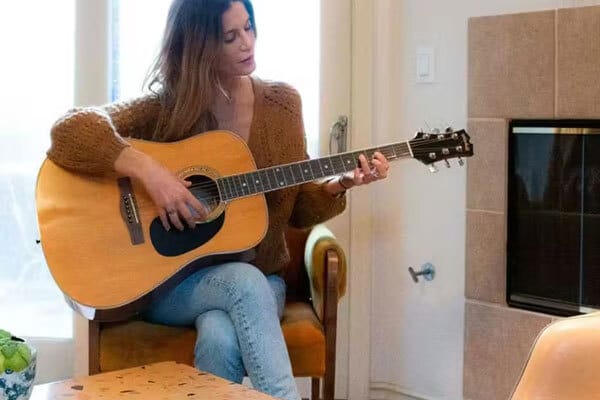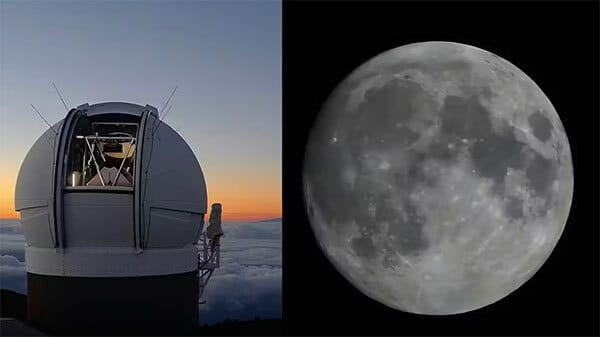- The Daily GOOD
- Posts
- Neuroscientists share a hack that makes learning anything faster and easier
Neuroscientists share a hack that makes learning anything faster and easier
Science has a trick for remembering new skills, Ireland tries paying for art and turns a profit, NASA says we've got two moons for the next 60 or so years. Plus, the iPod starts a chain reaction that continues to this day.
“With freedom, flowers, books, and the moon, who could not be perfectly happy?”
― Oscar Wilde
In this issue...
Meet the prime numbers that are the secret to memory.
“Uh 2, 3, 5, 7” sounds a bit like how a jazz band might start a really funky piece that’s gonna be hard to listen to, but neuroscientists and educators say it’s the secret to overcoming the brain’s natural habit of forgetting everything we want it to learn.
In this story, Mark Wales dives into the science of spaced repetition, a technique that uses weirdly timed reviews to hack your memory and keep knowledge locked in. Whether you’re learning a new language, prepping for a presentation, or trying to master that one guitar chord, this method might be your new best friend.
It’s counterintuitive, slightly annoying, and wildly effective. But the real magic? It works even if you’re kinda lazy about it.
Image of the day
Choose the Right AI Tools
With thousands of AI tools available, how do you know which ones are worth your money? Subscribe to Mindstream and get our expert guide comparing 40+ popular AI tools. Discover which free options rival paid versions and when upgrading is essential. Stop overspending on tools you don't need and find the perfect AI stack for your workflow.
Ireland paid 2,000 artists a salary and had an almost 40% ROI.
For three years, Ireland gave 2,000 artists a basic income, about $1,500 a month, no strings attached. Critics called it a taxpayer giveaway. But when the program ended, the data came in: for every euro invested, society got €1.39 back.
Paying painters, poets, and performers actually boosted the economy. In Erik Barnes’ story, we learn the pilot didn’t just keep creatives afloat; it cut social costs, increased working hours, and even inspired more public support for the arts. Now Ireland’s making it permanent, with plans to expand.
It’s a reminder that art isn’t just decoration, it’s infrastructure for imagination, and apparently, GDP.

How do feel about funding the arts?It's a complex issue that seems to be ever up for debate. |
And what did we learn?
In the last issue, we dove deep into the complicated nuances of (checks notes) emoji.
Then we ask you how you feel about the tiny icons. Overwhelmingly, GOOD Readers gave emoji the big thumbs up… in the right context.
💖 I love them! I use them all the time 🤩 (21.2%)
A fun way to clarify tone in a short message 👍 (59.6%)
They're a crutch for those who can't express themselves with words (10.1%)
There's a time and place, and a quarterly sales report is is neither, Brenda! (9.1%)
Reader JSJudySimmons spoke up for the group. “An emoji is ‘...worth a thousand words.’” And I know what you’re going for JSJudy, but I’m a professional writer and I’m paid by the word, so let’s not go about spreading that idea. Thanks.
🎶 New moon, you saw me standing alone, without a dream in my heart, without a love of my own… 🎶*
Apologies to the werewolves this spooky season, but your lives are about to get complicated. NASA has confirmed that Earth’s been secretly sharing its orbit with another rock, one that’s been hiding out for sixty years.
In this story by Erik Barnes, we learn that astronomers using the Pan-STARRS telescope spotted a “quasi-moon” called 2025 PN7, quietly looping around our planet in a stretched-out orbit. Think of it as the Moon’s clingy little cousin: smaller, weirder, and not ready to move on.
Scientists estimate it’s only about the size of a small building, which means you can’t spot it with the naked eye, but it’s still big enough to make space nerds giddy. 2025 PN7l stick around until 2083, making it a long-term guest in our cosmic Airbnb.
* - [Editor’s note: It’s “Blue moon,” Greg. Come on.]


The original iPod looked quite a bit like a domino, which is appropriate because when it dropped 24 years ago today, it started a series of events that created and destroyed entire industries. Two years later, Apple would launch iTunes, which shook the music industry nearly to pieces. “Podcasting” took its name from the shiny, ever-shrinking device and has become a massive industry of its own. (It also inspired Only Murderers in the Building!) iPod evolved directly into the iPhone, which launched the smartphone era, and we all know how that’s going. A strange, inexorable series of events that started with Steve Jobs announcing you could fit a thousand songs in your pocket and hasn’t ended yet.
Do you have something GOOD to share?
We’re always on the lookout for uplifting, enlightening, and engaging content to share with readers like you. If you have something you think should be featured in the Daily GOOD, let me know!
💬 From the group text…
It doesn’t surprise me to learn twins have a lot in common, but this? This is doubly mind-blowing! And now I have a craving for Doublemint gum.
Join the Group Text! Send us your social media gold.
Until tomorrow, may you finally remember that important thing you tried not to forget.









